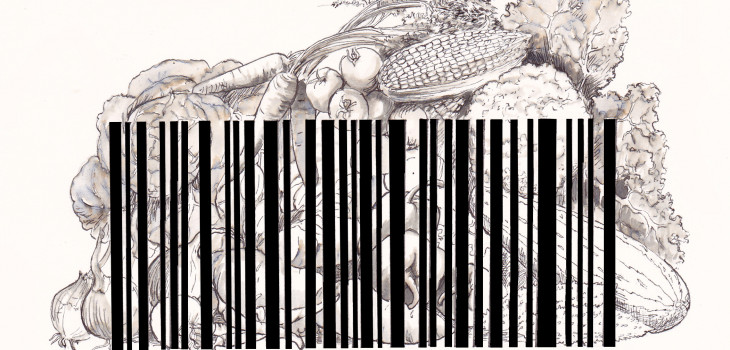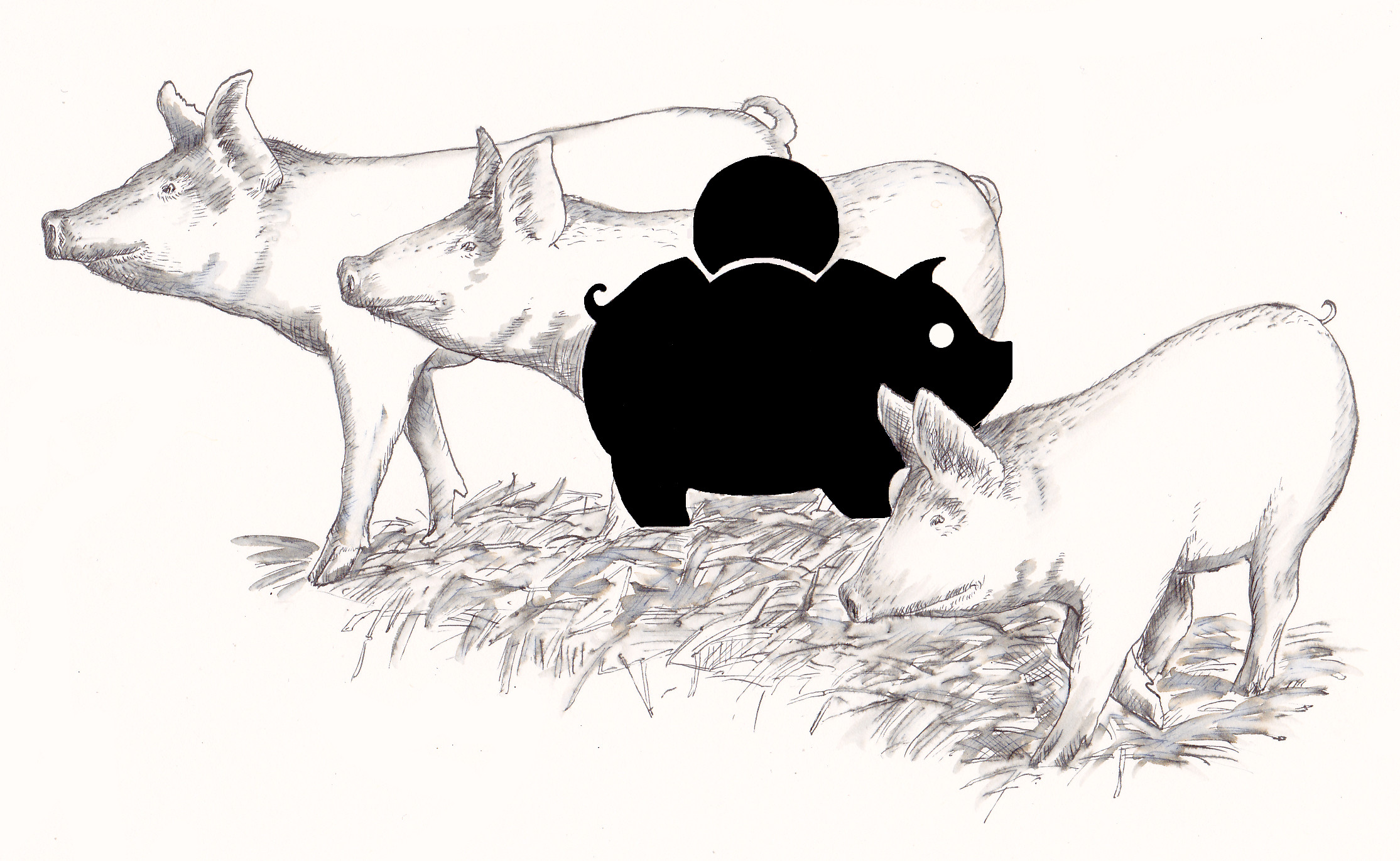Exploring and opposing green capitalism

[responsivevoice_button]
On 8 May Corporate Watch held a symposium on green capitalism, bringing together activists, academics and anyone who was interested, to discuss trends within green capitalism, how to oppose them and possible alternative approaches.
The symposium was organised following the publication of our A-Z of green capitalism in which we explored the idea and related themes, including genuinely ecological alternatives.
Green capitalism is often presented as a way of addressing environmental problems without having to change underlying economic systems. However, put simply, it is a contradiction in terms as capitalism is fundamentally reliant on the exploitation of nature and natural resources (as well as people!). But the idea of green capitalism is also used as an effective way of undermining ecological resistance and efforts towards systemic change.
The symposium provided a space to go into more detail on some specific themes within green capitalism, with expert speakers providing introductions to spark discussion among participants. Individual sessions were held on food, co-ops, accountability, technology and design. Below we provide a very short summary of what was discussed and point readers towards some resources for further exploration.
To read more about Green Capitalism, see our A-Z, downloadable from the Corporate Watch website here.
Opposition to corporate control of the food system
Tomaso Ferrado from Warwick Law School started the symposium with a presentation on the corporate control of food systems. He explained how the food market is controlled by a small number of multinationals, and how consumer aspirations in the global north for healthier more environmentally friendly food had been turned into just another profit making opportunity by corporations. Although most of the food around the world is produced by small scale farmers, the increase in demand for healthy, organic and greener food without considering the ecological, economic and social impact create new bottlenecks and unjust distribution of resources. Items for discussion included: agroecology, developments in organic and non-certifification in the UK, and the People’s Food Policy.
Here are some links for further related reading:
- Tomaso’s paper on ‘The Financialization of Land and Agriculture: Mechanisms, Implications and Responses’
- The Cornucopia Institute does research and investigations on agricultural and food issues. They support economic justice for family-scale farming and back ecologically produced local, organic and authentic food.
- La Via Campesina is the international movement which brings together millions of peasants, small and medium-size farmers, landless people, women farmers, indigenous people, migrants and agricultural workers from around the world. It defends small-scale sustainable agriculture as a way to promote social justice and dignity. It strongly opposes corporate driven agriculture and transnational companies that are destroying people and nature.
- The Landworkers Alliance is a member of La Via Campesina. They are a producer-led organisation of small-scale producers and family farmers who work to overcome the obstacles facing that land-based workers face.
- UK Food sovereignty movement
- Also, for an introduction to food related politics, see Corporate Watch’s Food Revolution poster.
Co-ops as alternatives to green capitalism
Sofa Gradin, of Queen Mary’s University, talked about the nature of non-for profit co-ops and how they provide alternatives to capitalist organising forms. The presentation included a simple way of defining non-capitalist co-ops and examples of existing co-ops, how they organised and the challenges they face, such as how to avoid destructive competition and informal power concentration. The discussions were based on how to replace capitalism with co-ops and included contributions on the Lucas Plan,energy co-ops, local currencies and economies, and how instead of expanding and ‘upscaling’ it is often better to ‘outscale’ and create replicable, small scale models.
Some links for further related reading:
- Cafe libertad (supplier of Zapatista Coffee)
- Radical Routes is a network of radical co-ops whose members are committed to working for positive social change. The network is made up mainly of housing co-ops of various sizes, a few workers co-ops and a couple of social centres.
- The are various collectives in the UK that can help co-ops and other groups with training on things such as consensus decision making and internal power dynamics. There is a list of them on the Rhizome website.

The fallacy of corporate accountability
Grietje Baars of City University began with an introduction on how corporations are the cause of most ecological destruction in the world, and that the simple answer to questions such as: should we sue them? Should we prosecute them? Should we demand laws that control them? is, No! Because essentially the legal system is designed to support capitalist agendas, and simply put, law loves capital and isn’t the same as justice. Discussions covered areas such as the form and nature of the corporation, corporate personhood (including the corporate death penalty in California), affordable non-corporate alternatives for consumers and the NGO industrial complex.
- For some further reading in this area see Grietje’s articles here
- Corporate Watch’s publication on corporate law and structures.
- Grietje also recommended checking out the May Project gardens, a non-corporate alternative combining gardening, training, food and music.
Technocracy and green capitalism
Dave King introduced the session by talking about the concept of technocracy, and how our current ecological problems can be traced back to the development of industrial capitalism. He described how technology is shaped by power relations and more so, how technocracy also shapes society, as things inbuilt into technologies direct societal development. He also described some problems with the environmental movement and how it can tend to treat ecological issues as de-politicised, scientific or technical problems. Discussions included how green capitalism (especially the ‘natural capital’ element) is a technocratic approach to conservation of nature, and the importance of identifying both capitalism and technocracy as being the causes of global ecological crises.
Corporate Watch will shortly publish an essay by Dave on Technocracy and green capitalism.
For some further reading, have a look at:
- 40th anniversary of Lucas plan
- Corporate Watch’s technofixes report
Within and beyond green capitalism
Joanna Boehnert of University of Westminster first discussed some competing terms suggested to define new geological epochs: Anthropocence (due to the human effects on geological processes); Capitalocene (where the effects on the global environmental are recognised as being due to capitalism rather than humans as a whole) and Ecocene (which, based on new ecologically informed relationships between humans and nature, is yet to emerge). Joanna described the important role that design plays in creating new, ecologically literate ways of thinking, but also how design is involved in maintaining current power relationships. For example, participatory design has been around for about 15 years, but is now being co-opted by capitalists.
To find out more, have a look at:
- Joanna’s new book, Design, Ecology, Politics. Towards the Ecocene
- Decolonising design
- Ecolabs:a not for profit graphic design research lab and studio engaged in the visual communication of complex problems. Creates resources, projects and programs that nurture ecological literacy, critical whole systems thinking and agency in response to environmental challenges.
